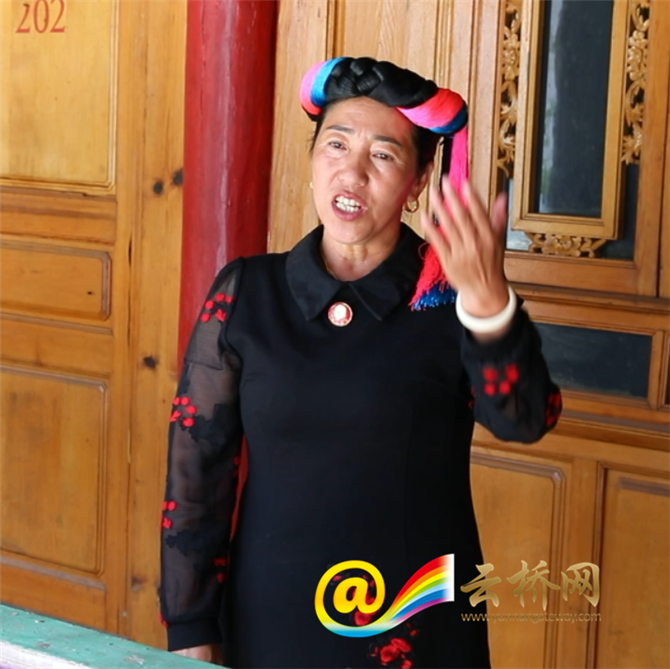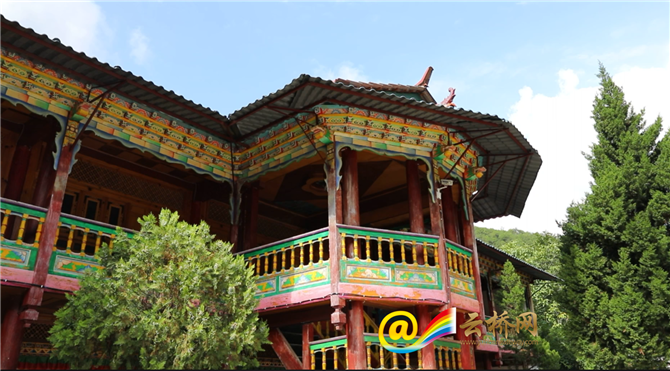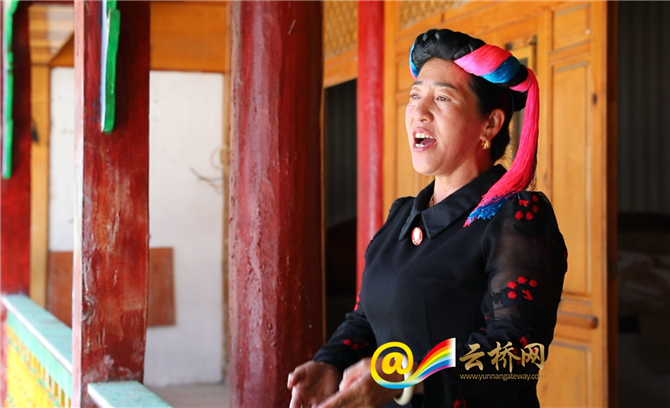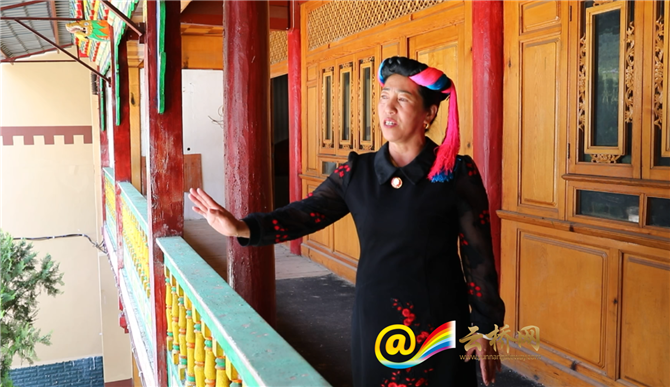Diqing inheritor (1) He Jinmei tireless singer of King Gesar in Tacheng
"Why is your hair half-combed, why is your face half-washed, and why do you have black and white hands?" The 53-year-old He Jinmei was singing beautifully, facing the sun and standing squarely.
Whenever she sang the Epic of King Gesar, the listeners would be visibly moved, be it a native or a visitor from afar.

The Epic of King Gesar is one of the world's great epics, as significant for Tibetans as the Odyssey and Iliad for the ancient Greeks. In history, the epic used to be widely spread in Tibetan regions from mouth to mouth.
But now the epic has become an endangered cultural heritage in northwest Yunnan’s Diqing Tibetan Autonomous Prefecture, and only a few inheritors can sing King Gesar.

“At the age of 14, I began to sing King Gesar. The story moved me a lot and I fell in love with it. For decades, I’ve been learning the epic from the master, and now I can sing all 52 episodes." He Jinmei said passionately, smiling.
"In Diqing, I am the only one who can sing the full epic in addition to my master. I’ll go on singing so that the King’s story can be passed down from generation to generation,” she added.
Jinmei’s master is He Mingyuan, national inheritor of the world-class intangible cultural heritage project of King Gesar. For Jinmei, Mingyuan is both her teacher and a senior whom she trusts and relies on.

A collective farming allowed He Jinmei to forge a life-long relation to the epic.
Having done the labor, the adults relaxed themselves via the Guozhuang dancing, while Jinmei, who just graduated from junior high school, nagged Mingyuan to tell her stories.
Mingyuan had studied Tibetan in the monastery and picked up some tunes in the epic. That afternoon, He Jinmei instantly fell in love with the melodies and King Gesar’s story was engraved at Jinmei’s heart.
“I want to learn from you!” said Jinmei begging Mingyuan. Back then, the 14-year-old girl was nicknamed a “lark of Tacheng.”
“But you should understand singing the epic means you have to live a poor life,” Mingyuan told her seriously.
“I don’t care,” replied Jinmei firmly.
“That's good, and then I’ll teach you,” promised Mingyuan.
In the ensuing 40 years, Mingyuan’s epic singing has been followed by Jinmei’s clear, high voice, and their antiphonal singing spread the King’s story across Tacheng and in its nearby villages.

A tune came to an end. The audiences, including a Tibetan young man, were deeply fascinated. “It’s my first time to listen to the epic, so beautiful!” said the young man.
Jinmei smiled: “Fewer and fewer Local Tibetans listened to King Gesar’s epic, so I am quite anxious. The master is now in his 70s, and he isn’t in good health. I’m still nagging, trying to learn from him as much as possible.”
“Is it easy to learn the epic?” one listener asked. “No! Very hard. I was smart in singing, and I picked up songs on TV that was played once or twice. But for the epic tunes, it took me many times to learn a single tune.”
The King Gesar epic has no written musical notes, and the singer has to learn all melodies by heart. As an inheritor, it is essential to make no mistake. Mistakes are taboo.
To learn the epic, Jinmei almost devoted all her leisure time. “Over the past decades, I have been singing, but finished it only in recent years. The epic covers more than 50 episodes in ten plus tunes, said Jinmei.
At the lively Reba dancing nearby, He Jinmei recalled she used to be good at the dancing like most Tibetans in Tacheng, but now what she want to do is to be the inheritor of the King Gesar epic.
In the sun shines and under the blue sky, the dancing and singing formed a marvelous picture of Tacheng’s local culture in front of the Tibetan wooden houses.

To save this heavily-endangered art, He Jinmei and He Mingyuan are now teaching their own offspring, trying to get more people engaged in tradition.
As women’s director of the Tacheng Village Committee, He Jinmei even promotes the epic in public. “Come on! Let me sing you a heroic story.” Jinmei often says at the end of villagers’ meetings.
“Give me a yellow fox cap, give me a thumb ring made of ivory, and give me a pair of boots with Tibetan wool...” He Jinmei continued her singing.
Reporting by Zhang Ruogu, Xiong Yan, Chu Donghua and Li Wenjun; trans-editing by Wang Shixue